SMALL, MEDIUM, AND LARGE: Otherwise, it’s hard to categorize the ingenious designs of Brooklyn makers at The Factory Floor in Industry City in the recent two-weekend show. But starting small, Brooklyn Artisan will do our best, for the record.
Small batch, small scale, big thinking at bhold design: Product development under the eye of Susan Taing, founder, takes certain characteristics from the MakerBot desktop 3D printer used to produce prototypes in the bhold lab. Double-walled thermal saki cups, for instance, with little fingerholds on one side.
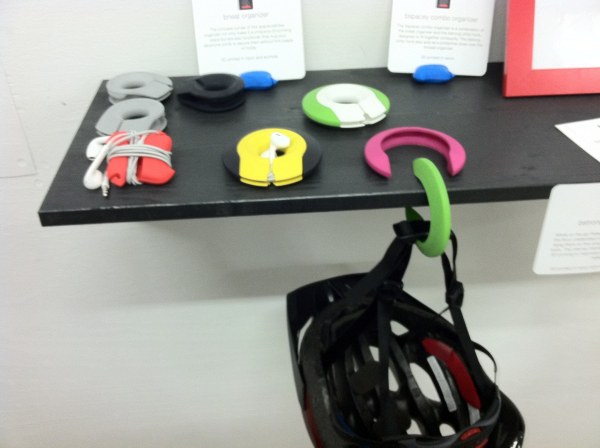
Using the MakerBot 3D desktop printer, bhold labs can turn around and refine prototypes in a few hours that might take days in traditional development cycles. (Photo: Brooklyn Artisan Photo Pool/dfs)
Or—our favorite, above—colorful little two-tone, two-piece objects that separate: the outer C-shape that hangs on the restaurant table and holds your bag or helmet by its handle or chin strap; and the inner part that emerges to wind and store your earbuds tangle free. You can work with the bhold labs on your own designs; contact susan@bholddesign.com. Or like us, you can just stand at a design show and play with the appealing objects fitting them together and taking them apart over and over again as minutes tick by.

Founder/owner Mark Righter crafted sliding shelves that don’t tip, thanks to the sliding dovetail joint. (Brooklyn Artisan Photo Pool/ams)
Small detail, big advantage: Cambium Studio is a Brooklyn-based woodworking furniture and design company founded by Mark Righter. From its Greenpoint location, Cambium will create custom designs for clients, and on its website offers a portfolio of pieces of its own design.
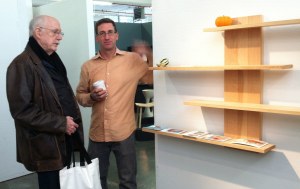
Talking shop with a potential client, Cambium Studio’s founder Mark Righter, with coffee, is next to his shelves with sliding dovetails. (Brooklyn Artisan Photo Pool/ams)
What caught our eye at The Factory Floor was deceptively simple but elegant shelving for display of favorite small objects—a place to put the candles, the Japanese vase, the framed photo—that can be adjusted as the array of objects changes. How?
The framework is hung from a secure cleat on the wall, but individual shelves operate on a sliding dovetail joint. The shelves, using bamboo, are beautiful finished and the sliding function gives you an excellent excuse to pat them and fiddle with them for the pleasure of touch.
Then there’s the MidCentury-looking coffee table with lift up hinged covers on its four storage compartments. Three of the covers are in a 60s’s orange and one is in bamboo strip laminate. Fittingly it is named Mod Quad by Wonk, its maker.
Other combinations of finishes to suit individual clients are possible, Wonk’s website says. In fact, since each piece is custom-made for you, you are confronted with swatches and urged to pick from them. Takeaway notion? Wonk if you love finishes.
Along with others, Pratt Institute was a co-sponsor of the design show at The Factory Floor. At the Pratt Industrial Design booth—Pratt Institute is, by the way, based in Brooklyn—Brooklyn Artisan was engaged by a very clean-lined yet comfortable loveseat. The foam cushions made it quite sittable. And as its Pratt graduate designer demonstrated, the cushions can be flipped to your choice of color contrasts.
More coverage from the recent Brooklyn design show at The Factory Floor in Industry City, Sunset Park, is to come in the next few days. For Brooklyn Artisan’s prior coverage, follow these links:
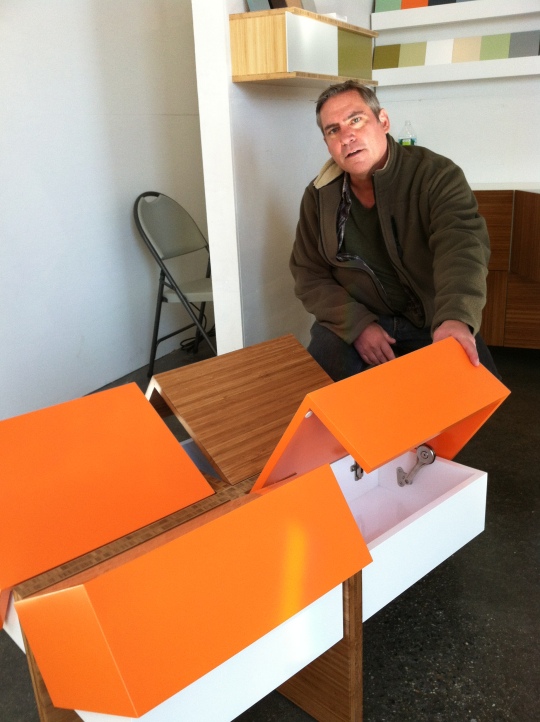

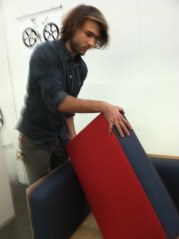
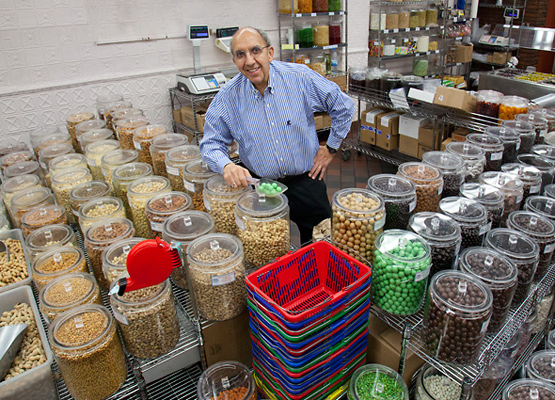
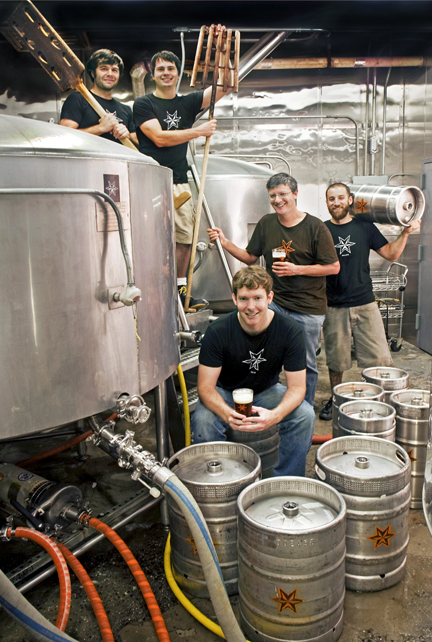
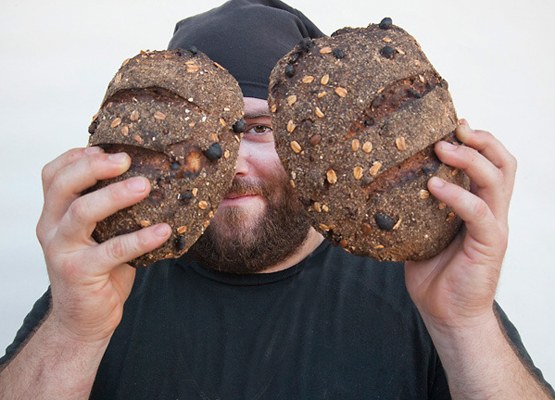
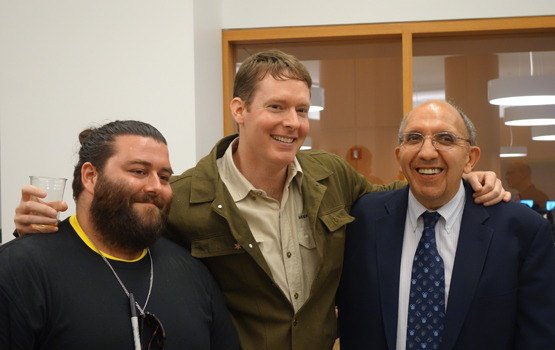








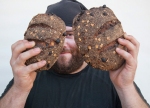


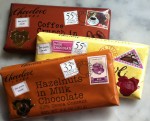

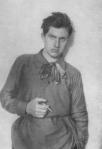
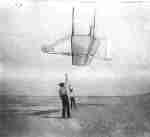


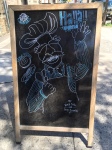
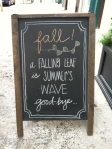


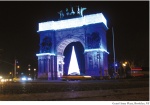
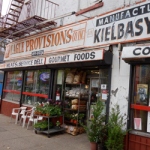

You must be logged in to post a comment.